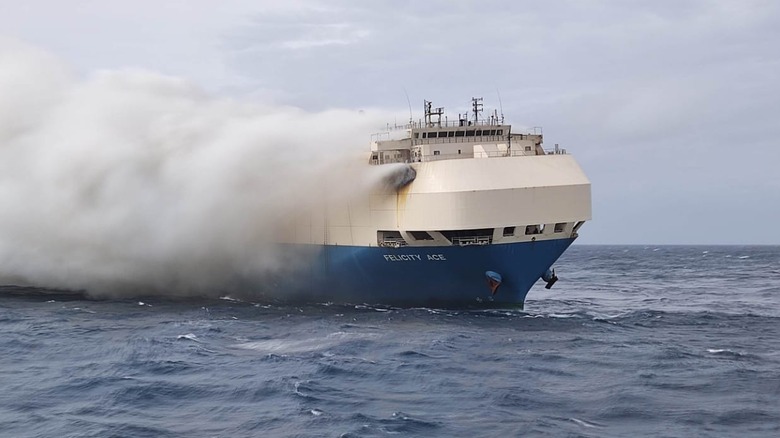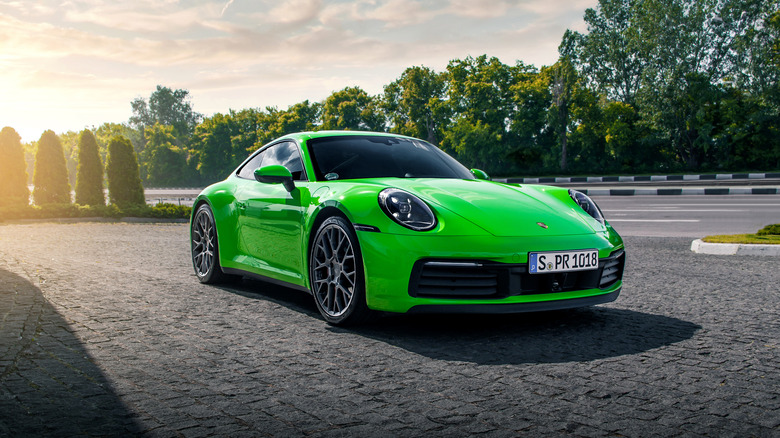The Burning Cargo Ship With Millions In Stranded Luxury Cars Just Sank
Bad news has just reached us from Portugal — Felicity Ace, the massive cargo ship left stranded on the Atlantic Ocean, has finally sunk. The information comes from MOL Ship Management, the company that owns the Felicity Ace. Around 9 a.m. local time, the ship suffered a list to starboard and sunk to the bottom of the ocean, taking with it nearly 4,000 cars that were being transported aboard. The ship's crew has long been evacuated, so there has been no loss of life — but the monetary loss is huge.
The Felicity Ace was en route from Germany to the United States when it caught fire near the Azores archipelago in Portugal. The fire broke out on February 16, 2022, and the crew sent out a distress signal, which resulted in all 22 crewmembers being evacuated by the Portuguese Navy. However, since then, the massive cargo ship continued to stay adrift, with no crew and extremely expensive cargo onboard.
At the moment of evacuation, the ship was on fire, and it stayed on fire for quite some time. Salvage crews have been sent to the location alongside firefighters, and eventually, the flames died down. According to the official MOL website, the plan was to tow the ship back to shore in order to salvage what was possible. On February 25, 2022, the salvage team was able to board the Felicity Ace and begin towing the vessel. Unfortunately, it seems that despite all efforts, the ship still sunk.
The cargo was worth hundreds of millions of dollars
It has been confirmed that Felicity Ace carried a total of 3,965 vehicles that it was transporting for Volkswagen Group. Some of these cars were custom-made and tweaked and cost upwards of $100,000 each. We know that around 1,100 of the vehicles onboard were Porsches, but other cars include Volkswagen, Audi, and Lamborghini. Most probably, all of the vehicles went down with the ship, and it's likely that a lot of them were heavily damaged by the fire.
No official figures have been released as to how much this sinking could have cost, but with nearly 4,000 luxury cars onboard, it's estimated that the vehicles were worth at least $400 million. This information comes from Russell Group, a risk analyst company. Together with the ship, this adds up to at least $438 million worth of losses. Of course, cargo ships are heavily insured, so Volkswagen Group will not be hit so strongly — however, the loss is bigger than it seems.
As we are in the midst of an ongoing chip shortage, and global supply chains are still not fully recovered from the first wave of the pandemic, losing 4,000 cars adds up to more than just a huge financial loss. Remaking these vehicles, especially those that were made to order, will not be easy to do. Supply chains remain constricted, and an event such as this does nothing to improve the situation whatsoever.

